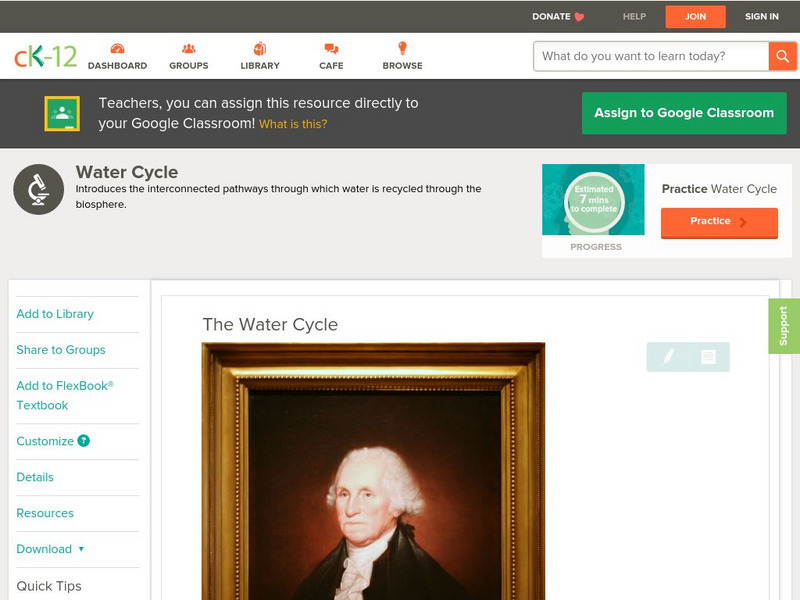ClassFlow
Class Flow: Understanding Ecosystems
[Free Registration/Login Required] This flipchart will help students to learn about ecosystems and the living and nonliving things that interact in them.
E-learning for Kids
E Learning for Kids: Science: Scotland: How Can We Group Non Living Things Based on Characteristics/purposes?
Montgomery is a true Scot, and even wears a kilt. He works in his dad's store and needs help learning about materials.
CK-12 Foundation
Ck 12: Life Science: Water Cycle
[Free Registration/Login may be required to access all resource tools.] Water and elements like carbon and nitrogen are constantly being recycled through the environment. This process is called a biogeochemical cycle because it involves...
University Corporation for Atmospheric Research
Ucar: Biogeochemical Cycles
The ways in which an element or compound such as water moves between its various living and nonliving forms and locations in the biosphere is called a biogeochemical cycle. All of the atoms that are building blocks of living things are a...
Other
Hub Pages: Abiotic Factors: A Component of Ecosystem
In the environment, there are external factors that really affect organisms living within it. One of these factors is the set of abiotic factors, or nonliving variables, such as wind, ocean, day length, rainfall, temperature, and ocean...
CK-12 Foundation
Ck 12: Life Science: Ecosystems
[Free Registration/Login may be required to access all resource tools.] Ecology is the study of ecosystems. That is, ecology is the study of how living organisms interact with each other and with the nonliving part of their environment....





